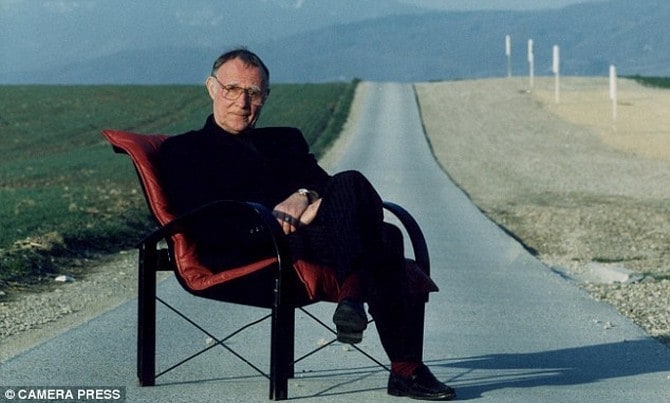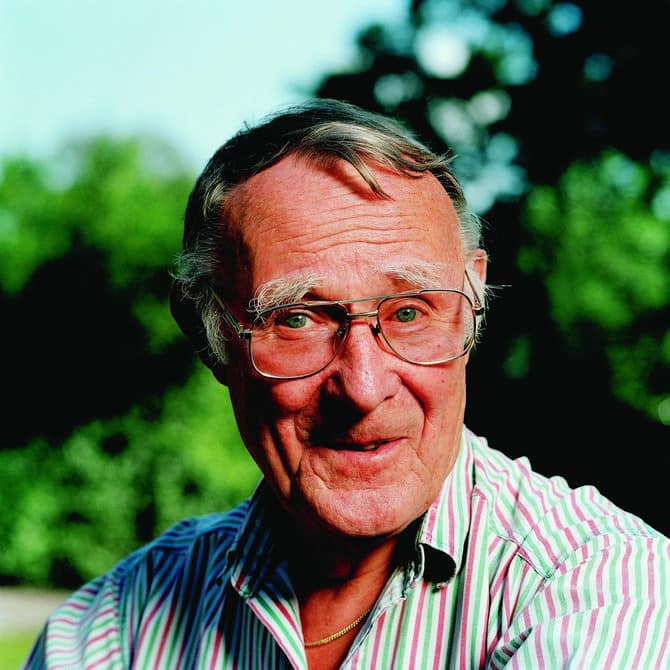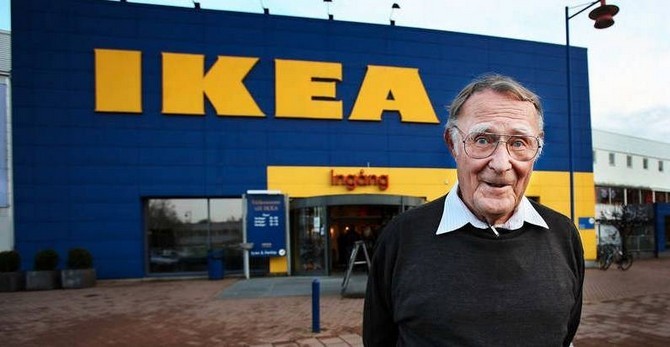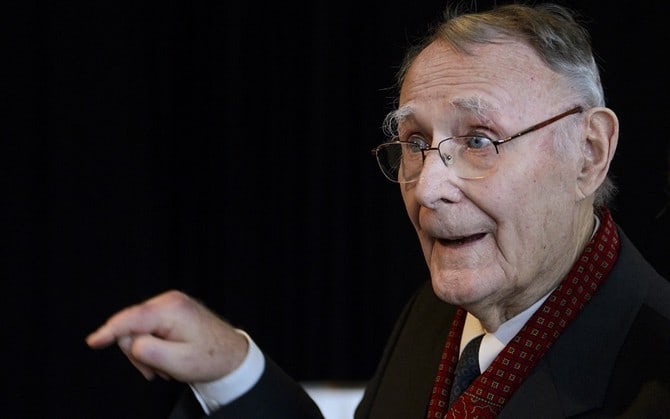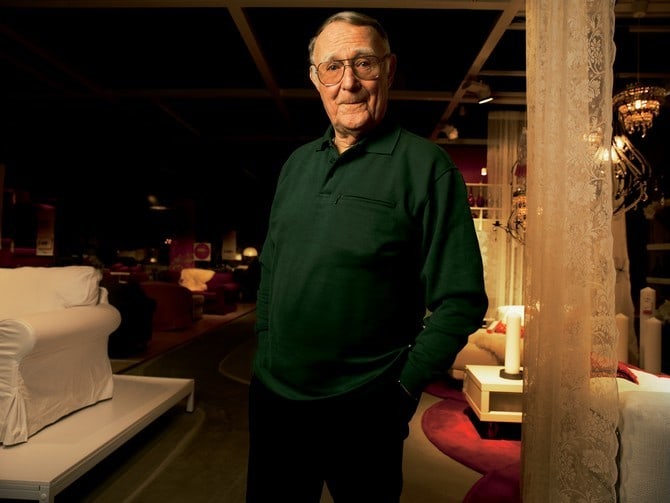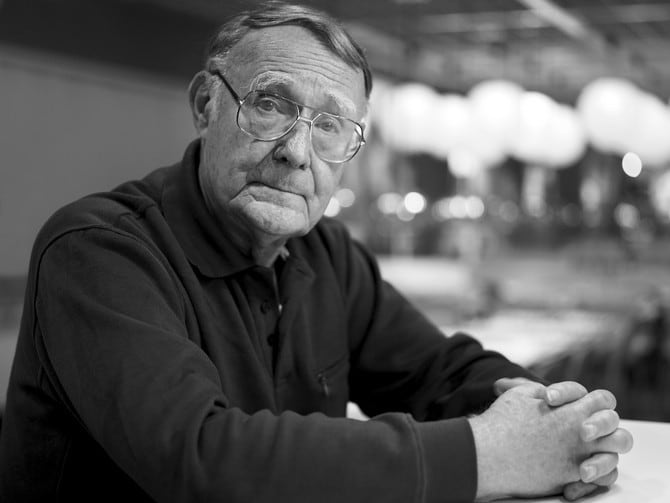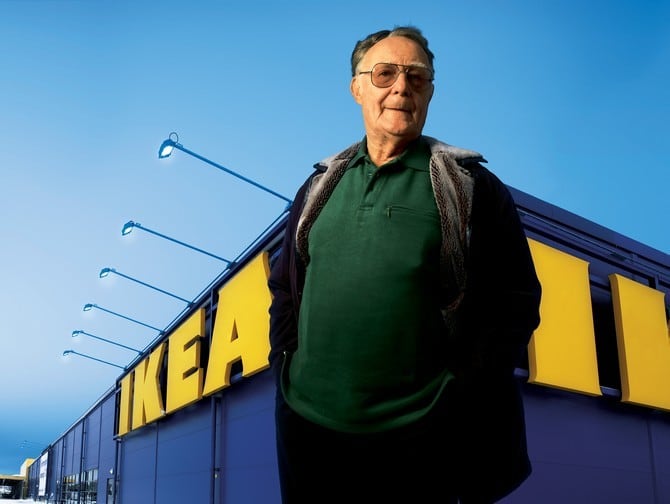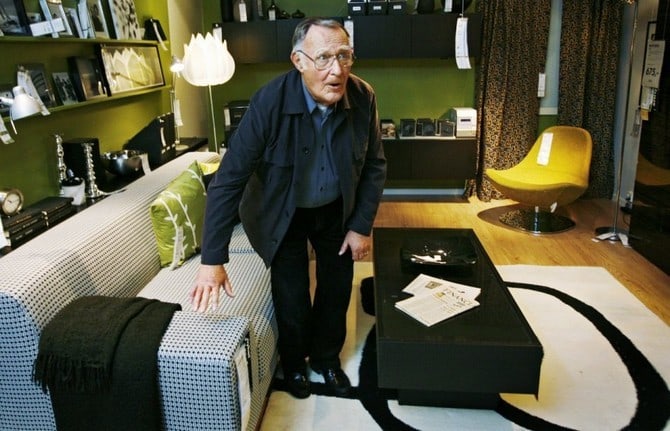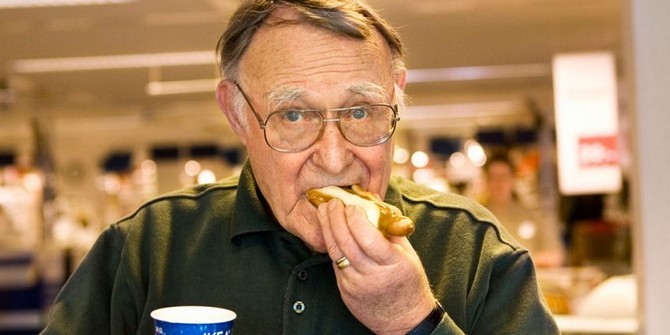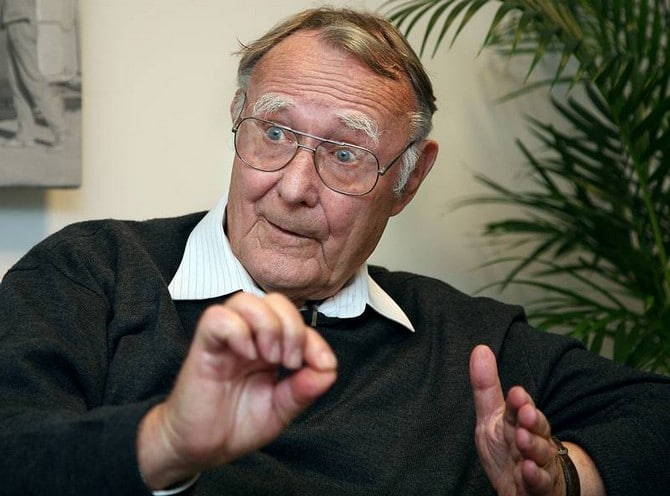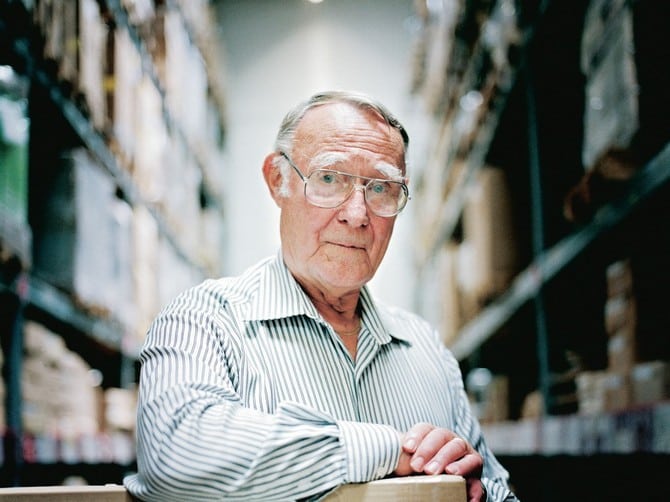The founder of IKEA and famous business magnate Ingvar Kamprad was born on 30th of March 1926 in Pjatteryd, Sweden and grew up on a farm called Elmtaryd located near the Agunnaryd village and in that period the country was agrarian and quite poor, especially in his region. The hard work, egalitarianism and frugality were the values he learned here and he would implement the same philosophy with IKEA.
The age of six is when he started the first steps into his career by selling matches to neighbors with his bicycle allowing him to travel faster. He bought matches in bulk at a very low price from Stockholm and then sold them individually at a low price for a good profit. After a while he expanded with fish, Christmas tree decorations, seeds and pencils.
Although he was dyslexic he worked hard in school and was doing well, so at the age of seventeen, in 1943, his father gave him a small sum of money for the performance. This is when he diversified the merchandise by adding furniture which would be ordered by mail. The workshop was at the kitchen table of Uncle Ernst and the name he chose was IKEA from the initials of Ingvar Kamprad from Elmtaryd, Agunnaryd, the home where he spent the childhood.
The attempts of a young boy to make some pocket money led to one of the largest companies in the world and one that everyone knows. Two years after starting the ready-to-assemble furniture business, Ingvar had started to use milk trucks to deliver the pieces and by 1947 he was selling furniture created by local manufacturers at low prices. The year 1955 led to a boycott since the low prices made the manufacturers go out of business and thus the items had to be designed in his home once again.
To be easier to transport he would sell the products in the flat-pack form and the style was quite elegant for contemporary standards, allowing an affordable and efficient design that made the popularity of the furniture rise exponentially. Soon enough he had enough revenue to open the first Mobel-IKEA store, in 1958, which was located in Almhult, Smaland, Sweden and by 1963 the company reached Norway as well.
More and more stores were opened across the Scandinavian Peninsula and Denmark was next with the first store opened in 1969 after which the rest of Europe was taken by storm, with a haste that led to an accidental opening of a store in Konstanz instead of Koblenz in 1973 after a mix-up. The 1970s was the period when other continents were targeted as well, so Japan, Australia, Hong Kong, Canada and Singapore learned the name of IKEA and so on until this day.
There were 351 stores by December 2014 spread through 46 countries. At the opening of the first IKEA store in Shanghai there were 80,000 visitors and the business seemed to always grow and thrive, without the need for any borrows or stock issues.
There are several anecdotic stories about the life of Ingvar who apparently was sleeping late and when his father complained about this he got an alarm clock and set it to 6 A.M., removing the off button. One of his quotes says that we should divide the daytime into “ten minute units and sacrifice as few of them as possible in meaningless activity.” He certainly did this with his life, building an impressive empire.
Although he is about to celebrate his 89th birthday, he is still visiting the new IKEA stores, economy class flights only for him, and still considers his employees co-workers. When moving through the country he drives an old Volvo and usually eats at the IKEA café.
One of his former executive assistants Johan Stenebo wrote a book about Ingvar Kamprad and described him this way: “He wanted to appear as a man of the people, one of us. […] Invgar casts himself as the underdog, presenting himself to the world as a somewhat dim, alcoholic dyslexic. He tells people he has many shortcomings, that he is slightly stupid. Yet he remains incredibly sharp and knowledgeable down to the smallest detail. He will tell you in seconds how much Russian pine sawn on the spot, glued and then refined in Poland would cost in a Swedish store.”
His first marriage was to Kerstin Wadling and together they adopted a daughter called Annika Kihlbom, while after a while he remarried to Margaretha Stennert and had three sons with her called Peter, Jonas and Mathias. Margaretha died in 2011 from an undisclosed disease.
From 1976 to 2014 Kamprad lived in Epalinges, Switzerland and his frugality became the stuff of legend with kleptomaniac tendencies such as taking the salt and pepper packets from restaurants, or buying Christmas paper and presents in the sales after Christmas. Cost control was always one of his main concerns at IKEA as well and in his work A Testament of a Furniture Dealer from 1976 he wrote that “It is not only for cost reasons that we avoid the luxury hotels. We don’t need flashy cars, impressive titles, uniforms or other status symbols. We rely on our strength and our will!”
He finally gave up his 1993 Volvo 240 and began driving a Porsche afterwards and aside from his villa in Switzerland he owns a large country estate in Sweden and a vineyard in the south of France. During his early career he became an alcoholic but in 2004 he managed to get this problem under control and he decided to move back to Sweden at the end of 2013.
Due to the complex structure of the IKEA Corporation it is quite difficult to estimate his net worth. He retains little direct ownership of the company since his interests were transferred to Stichting INGKA Foundation and INGKA Holding for tax sheltering and this led to the estimation of his fortune at 23 billion dollars in March 2010 by Forbes although in October 2012 the Bloomberg Billionaires Index estimated his worth at 42.6 billion. The INGKA Holding is the parent company for all IKEA stores and it works as a charitable foundation (probably the wealthiest in the world), ensuring corporate tax-optimization and anti-takeover protection for IKEA.
In June 2013 Kamprad resigned the board of the IKEA Holding and his son Mathias Kamprad replaced Per Ludvigsson as the chairman. The two older brothers have leadership positions at IKEA as well.

